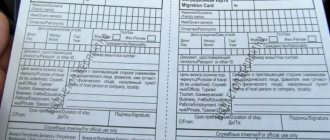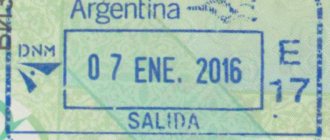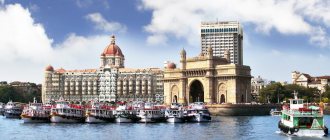Visas to Italy
- transit visa
- issued to persons whose purpose of visit is transit to third countries through an international airport in Italy; - visa-free transit
- if a transfer from one flight to another is carried out in the transit zone of one airport within 24 hours, to a country not included in the Schengen zone; - visa category C
(short-term stay up to 90 days) - issued to persons whose purpose of visit is tourism, transit, visiting relatives or friends, business trips. This visa gives the right to visit countries in the Schengen area. A visa can be single, double or multiple and allows a foreigner, respectively, one, two or an unlimited number of times, during the time specified in the visa, to transit or enter and plan to stay in the territory of the countries participating in the Schengen Agreement. The validity period of a visa can be from several days (usually issued according to the duration of the trip) to several years, however, the duration of the trip or the total number of days of stay in the territory of the Schengen countries should not exceed 90 days for each period of 180 days; - visa category D
(long-term national visa for a period of stay of 90 days) - valid only in Italy and gives the right to stay in the country for up to 1 year with the possibility of extension after completion. This visa gives the right to travel to Schengen countries for up to 90 days during the validity period of the national visa. For such a visa, you must apply directly to the Consulate General of Italy in Moscow, St. Petersburg, depending on the jurisdiction of the consulate.
Trip to Italy with children, visa application
Quite often the question arises about how to legally approach traveling to Italy with minors.
If a child is included in your international passport, then you need to make sure that his photo is pasted in the appropriate form in the passport. For each child added to the passport, one visa will be issued and affixed.
Additionally, you will need to prepare and submit the following documents to the consulate:
- Application form - you will need to fill it out only in English or Italian if you know this language. The application form for the child must be checked and signed by the father and mother.
- A copy of the child’s birth certificate and its original (needed only for verification, it will be returned after verification). If in the child’s data the surname of both or one of the parents does not coincide with his, it will be necessary to add to the set a copy of the document that certifies the right of parenthood.
- If the baby is traveling only with mom or dad, or with a third party, then the parent or both of them must make a notarized permission for such an event. It is necessary to add to it copies of documents (passports) of the parent (or parents) that permit travel.
- It is important to issue such a power of attorney in two originals - you will give one to the consulate, and it is better to have the second with you when going through customs control.
- It should also be noted that the permit is issued no earlier than 30 days before submitting an application for a visa to Italy - the official website says so.
- If the father or mother has died and is officially missing, you will need to prepare official papers - for example, a death certificate, documents on deprivation of parental rights, etc.
Separately, it should be noted that the consulate has the right to put forward certain requirements for the power of attorney that you issue. These are the Requirements for the form - it must be a stamped paper with a permission certified by a notary.
It will need to include the contact information of the parent who gives permission. The document must indicate all the details of the person who will be traveling with the child. The validity period of the power of attorney is no more than two periods of stay in the country.
It is also important to pay attention to the fact that the power of attorney must include all the data of the notary and his seal must be affixed. It is also better to immediately obtain a copy of the notary’s license - it may be requested additionally. The power of attorney must indicate the exact timing of the trip and must be duplicated in Italian. The translation does not need to be certified additionally.
Processing times and costs
As a rule, a visa to Italy is issued within 5-7 working days . However, it is important to understand that during the season this period may extend due to the large number of applications submitted. Therefore, it is recommended to take care of this in advance.
The cost of registration is summed up - this will be the visa fee and the service fee of the center through which the registration is carried out. The visa fee is only 35 euros, however, if you need faster processing, the cost of a visa to Italy will be twice as high.
The consular fee may not be paid:
- Children who have not yet reached the age of six.
- Close relatives of citizens of the European Union or citizens of the Russian Federation who reside there legally.
- Students of schools and universities who travel for educational purposes. The fee is also not paid by the person accompanying them.
- Exchange program participants.
- Participants in artistic and educational events.
- Persons who have a humanitarian purpose.
Reasons for refusing a visa
In general, citizens of the Russian Federation receive refusals quite rarely. However, there are situations in which this probability is very high.
Here are the three most common reasons:
- The applicant's account does not have sufficient funds to cover the trip.
- The applicant submitted false information to the consulate.
- The applicant has had a history of misuse of a visa issued by a Schengen country.
If you want to avoid rejection, you must do the following:
- Make sure that all the data was entered correctly - you need to check literally every letter so that there are no differences.
- Check the dates, periods and reservations - everything given in the hotel or hostel reservation must correspond to the length of stay in the country. If, while in Italy, you change your location, for example, in connection with attending an event, it is better to attach a copy of the tickets for the event with the dates to your documents.
- He will carefully check the readability of all data on documents and their copies - all details and little things must be distinguishable - right down to logos.
If your visa application is refused, you can appeal. As a rule, it is considered for quite a long time - up to two months.
In the text of the appeal (in English or Italian), it is necessary to indicate all the data - passport number, date of filing and reason for refusal.
- Next, you need to present your arguments regarding the incorrectness of such a decision. If you are sure that you are right, it is better to file such an appeal, since a refusal of a visa may complicate its receipt in the future. If you were rejected due to a lack of documents or an error in them, you can correct it and resubmit your application.
Filling out the form
Please note that filling out the Italy visa application form must be done exclusively in Italian or English. This form must be found on the consulate’s website and filled out personally. We recommend that you print several forms at once so that in case of an error you can transfer all the information.
As a rule, the questionnaire contains fairly standard questions. The main difficulty lies in checking the data - it must completely correspond to the documents you are submitting.
- For example, information about the place of work should be identical to the certificate - so it is better to take care in advance to find out how to correctly spell the company name in English. The same applies to your place of residence - you need to know exactly how your home address is written in English.
Filling out the application form must be done with the utmost care - any blots or marks may be a reason for refusal to issue a visa.
Features of obtaining a Schengen visa
It is important to understand that obtaining such an entry permit has some features. Its validity period ranges from several days to 5 years with the right to enter the territory of the Schengen zone more than once.
Also, depending on the type of visa, the period of entry into the territory may differ - when receiving a category C visa, it can be no more than three months for every six months.
- There is also the possibility of obtaining different visas depending on the number of entries. This can be a single visit, two entries or a multiple entry visa, which opens up the opportunity to visit any Schengen countries an unlimited number of times.
It is also important to pay attention to the situation in which a tourist visits several Schengen countries. If you are planning a trip to Italy, for example, for a week, but want to stay in France for one day, you need to open an Italian visa. However, if you want to enter both countries for an equal number of days, a visa is issued for the one through which you first enter Schengen territory.
Applying for a visa to Italy
As a rule, visa refusals occur due to the applicant’s lack of awareness. Indeed, information regarding some points is quite difficult to find. However, turning to specialists makes it possible to avoid any difficulties.
Employees of companies that specialize in issuing visas to Italy know about all the intricacies and can help with obtaining a visa even in a rather difficult situation, preparing the correct package of documents. Contact the professionals - and your trip will be comfortable and calm.
List of documents for obtaining a visa to Italy through a travel agency
An approximate list of documents required to obtain an Italian visa (different tour operators may require a different set of documents):
- international passport
valid for 3 months after the end of the trip. Be sure to have two blank pages. The passport must not be damaged, torn, dirty, or have any extraneous entries or marks. All corrections in the passport must be certified by the seal of the issuing authority. The passport must contain the signature of the owner from the age of 14; - Application form for a visa to Italy in two copies. The application form must have the original signature of the tourist, as in the international passport (signature in paragraph 37 and at the end of the 4th page), one of the parents signs for the minor;
- 2 color photographs
: 3.5x4.5 cm, matte, on a white background, without corners, ovals, stamps, black glasses, in dark clothes, less than 6 months old, head size 3.2-3.6 cm (70-80 % of the entire image). The passport should not contain visas with this photo; - copies
of the first page
of the international passport
and all Schengen visas in it. If the passport contains visas opened by the consulates of Schengen countries, but the border crossing stamp was placed by another Schengen country, then a written explanatory note from the tourist is required to provide the reasons for this discrepancy; - copies
of all
Schengen visas
in canceled passports, including copies of the first pages of these passports; - copies
of all completed pages
of the internal passport
. In case of a change of surname and replacement of a civil passport with a new one, the tourist MUST replace the foreign passport with a new surname within one month from the date of change of surname; - a certificate from the place of employment
on the company's letterhead indicating the telephone number and address of the organization, position, length of service and monthly salary of the applicant (at least 20,000 rubles), the period of paid leave is indicated. The certificate must indicate the date of issue. The certificate is valid for no more than a month from the date of submission of documents to the Consulate. The certificate is signed by the head of the organization and certified by a seal. If the head of the enterprise is a relative or namesake, a second signature is required (chief accountant, deputy director, head of human resources). Working pensioners additionally provide a pension certificate; - confirmation
of a sufficient amount of funds (if the salary is less than 45,000 rubles) - an original bank account statement with movements for the last 6 months on bank letterhead, confirming that the tourist has sufficient funds, at the rate of 57 euros per day, but not less than 1000 euros per person or, in case of insufficient personal funds, a statement from the sponsor to assume all expenses, indicating the relationship of the sponsor and the sponsored + documents confirming the relationship: copies of the marriage / birth certificate, + a copy of the first page and page with registration of the internal passport, a certificate from the sponsor’s place of work and an extract from his account; - for tourists who are married
but have different surnames, it is necessary to attach
a copy of the marriage certificate
; - if one of the tourists has a valid Schengen visa
, you must attach copies of the double-page spread of your passport with a photo and visa; - if your own funds are insufficient,
be sure to include
a statement from the sponsor
agreeing to cover all expenses
Additional requirements
for non-working people
(schoolchildren, students, pensioners, housewives, etc.):
- certificate from the place of study
(students, schoolchildren) - copy of student ID
(students) - a copy of the pension book
, notarized (pensioners) - a statement from the sponsor
about accepting all expenses, indicating the relationship between the sponsor and the sponsored person (+ a copy of the relationship document), + a copy of his international passport (first page) or a copy of the first page and page with registration of the internal passport, a certificate from the sponsor’s place of work, with indicating a salary of at least 20,000 rubles or a bank account statement at the rate of 57 euros per day per person.
for individual entrepreneurs
and those who work for them (in addition to a certificate from the place of work):
- a copy of the certificate of registration
with the tax authority - a copy of registration certificate
with the tax authority
for minors:
- a notarized copy of the child's birth certificate
. If the surname of one or both parents in the birth certificate does not coincide with the surname of the child, it is necessary to provide notarized copies of documents confirming the relationship (certificate of paternity, marriage certificate, divorce certificate) - when a child leaves with one of the parents,
it is necessary to provide a copy of the notarized permission to leave from the second parent + a copy of the internal passport of the parent giving consent to the entry and exit of the child - when a child leaves accompanied by third parties,
it is necessary to provide a copy of the notarized permission to leave from both parents + copies of their internal passports, including the accompanying person - a copy of the visa
+ a double page of the passport with the details of the accompanying person (or parents), if any; - in the event of the death of one of the parents or deprivation of his parental rights, it is necessary to provide copies of the relevant documents. If one of the parents is missing, a police certificate is required; if at the birth of the child the father was registered according to the mother’s words, it is necessary to provide a certificate from the regional registry office - form 25 (original or notarized copy)
Sponsors can only be immediate family members
- spouses, parents, children, grandparents (documents confirming relationship must be provided)
The consulate reserves the right to request additional documents and invite a tourist for an interview, regardless of his location.
Is it difficult to get a visa to Italy?
Myths and reality
Tourists who do not have experience in obtaining visas to Italy on their own often ask the question “How difficult is it to get a visa to Italy?” This is a burning question. Therefore, let's try to figure out whether it is so difficult to obtain an Italian Schengen visa and how we can reduce the likelihood of refusal?
In general, the topic of obtaining visas to European countries is shrouded in many of the most unimaginable myths. It is believed, for example, that it is almost impossible for young unmarried girls (especially pretty blondes!) to obtain a visa to Italy. Many people believe that if you do not provide a certificate of employment, then you will never get a visa. There is also an opinion that a hotel reservation must be confirmed on hotel letterhead with a signature and stamp. Some even seriously believe that an electronic air ticket (that is, a ticket purchased online and printed on a printer) is not suitable for the Italian consulate. All these questions are an eternal subject of concern for many tourists and are constantly discussed in various forums. Let's try to clarify by examining each of these myths separately.
However, we will make a reservation that further we will talk exclusively about tourist visas, since the requirements for documents for other types of visas (for example, a business or work visa) are somewhat different. Please also note that we have no connection with Italian visa services
. Everything written below is based on the personal experience of the authors of i-Italia.ru. You can always check the correctness and relevance of all this information at the Italy visa center - see www.italy-vms.ru.
Will an unmarried young girl be given a tourist visa to Italy?
Yes, they will, if the documents provided for the visa meet the requirements described here. Your age, marital status, hair color, etc. does not matter. It can be argued that no one in Europe (including Italy) is interested in the influx of immigrants from Russia, and therefore consulate officials are suspicious of such categories of tourists as unmarried girls, the unemployed, students, etc. But you are not planning to immigrate to Italy, but on a tourist trip. Accordingly, all that is required of you is to confirm that the purpose of the trip is tourism, and that you have sufficient funds to fulfill your purpose. If during the preparation process you still have any questions, you can always call the Italy visa center and ask them. A list of contacts can be found here.
Can an unemployed person get a tourist visa to Italy?
Yes. In this case, you can indicate on your visa application that you are unemployed. In this case, you do not need to provide a proof of employment. However, this does not eliminate the need to provide financial guarantees. That is, you must confirm that you have money for the trip, and that you are a tourist, and not a potential illegal immigrant. The list of documents accepted by the Italian Consulate as a financial guarantee is described here. Again, if there is anything you do not understand, call the visa application center.
Is a printout from www.booking.com sufficient to obtain a visa to Italy?
Yes. As a hotel reservation, you can provide a booking confirmation from both www.booking.com and other booking sites.
Are e-tickets suitable for obtaining a visa to Italy?
Yes. If you bought air tickets online, you should print them out and attach them to the set of documents submitted for a visa. That is, the method of purchasing tickets does not play any role. The main thing is that you have them 
This is just a small part of the questions and fears that arise in the process of obtaining a visa to Italy. But there is no need to be afraid. If you really are going to Italy for the purpose of tourism, and you really have enough money for this, then the likelihood of refusal is minimal. In fact, the percentage of tourist visa refusals is negligible. All of the above, of course, is not an official statement (we are not employees of the Italian consulate) and is based solely on our personal experience and the experience of our friends. However, you can always check or clarify all this information by calling the visa center. Just in case, we will once again provide a link to the list of telephone numbers of the Italian visa center in Russian cities. Good luck! Everything is not as scary as it might seem at first glance 
Applying for a visa to Italy yourself
You can apply for a visa to Italy yourself
, for this you need to collect approximately the same list of documents + medical insurance, a copy of round-trip air tickets, proof of residence, or an invitation, and submit it either to the
Consular Section
in Moscow, or to the nearest
visa center
which is located in the cities: Moscow, St. St. Petersburg, Belgorod, Vladivostok, Voronezh, Volgograd, Yekaterinburg, Irkutsk, Kazan, Kaliningrad, Krasnodar, Krasnoyarsk, Lipetsk, Mineralnye Vody, Nizhny Novgorod, Novosibirsk, Omsk, Perm, Rostov-on-Don, Samara, Stavropol, Tomsk, Ulyanovsk, Ufa, Chelyabinsk, Arkhangelsk, Petrozavodsk, Pskov.
Detailed information
information about types of visas, methods of obtaining, list of documents provided, production times, costs, addresses of visa centers, forms and samples of documents, sign up to submit documents, etc. can be found
on the website of the Italian visa center
in Moscow or St. Petersburg
How to obtain a Schengen visa
Update: Russians will be allowed to reissue visas to Italy, issued with a validity period from March to May, free of charge, to new annual ones.
Here is the official statement by the Italian Ambassador to Moscow Pasquale Terracciano, which was aired on the Russia-24 TV channel:
“Our Russian friends will always be welcome guests in Italy, and we do not want Russian citizens to be forced to cancel reserved tourist services or already purchased tourist trips to Italy due to this emergency situation (related to the spread of coronavirus in Italy). Therefore, I have ordered that all those who received a visa valid for the period March-April-May can re-issue it for an annual visa free of charge by contacting VMS visa centers throughout Russia.”
To apply for a Schengen visa to Italy, the first step is to make an appointment online. This can be done on the official website of the Consulate or an accredited visa service center, which is the official representative office of the Consulate in the regions (do not confuse it with numerous intermediaries).
After registration, collect the documents that we will consider below, as well as pay the consular fee. For citizens of the Russian Federation - 35 euros. More information about prices can be found on the VMS website. The services of the visa service center (collection and forwarding of documents) are paid separately.
- Make an appointment at the Consulate: prenotaonline.esteri.it
- Make an appointment at the Visa Application Center in your city: italy-vms.ru
When the documents are accepted for processing, you can track their status on the visa center website. There you will learn about the readiness of the documents, or order an SMS notification when the visa is ready, you will receive a message. After that, all that remains is to pick up your passport with a visa and prepare for your meeting with Italy.
Visa processing time
- when applying for a visa to Italy through a travel agency
, check the deadlines with your manager, usually they are
5-7 working days
from the date of application + time to send documents from the city of departure, and in the high season this period increases to 10 days - when applying for a visa through visa centers,
the period is
from 4 working days
, plus time for sending documents - Documents for obtaining an Italian visa can be submitted no earlier than 3 months before departure
.
Validity of a visa to Italy
The Italian consulate issues:
- single and double-entry Schengen visas
for a period of stay in the country
of up to 90 days
(usually the length of stay corresponds to the invitation/hotel reservation) - Schengen multiple visas
valid for
180 days
with the right to stay in the country (Schengen countries) for no more than
90 days
within six months. A multiple entry visa can be issued if the passport already contains Italian visas, or there is a reasoned written application for the need to issue a multiple entry visa - transit Schengen visas
valid
for up to 6 months
(the length of stay is determined depending on the tickets provided and hotel reservations. In the case of a double or multiple transit visa, the total period of stay during all entries is indicated)
Cost of obtaining a visa to Italy
When purchasing a tour through a travel agency
- for Russian citizens - 85-90
€ - for children under 6 years old - 40-45
€
When submitting documents independently through the Consulate
- for Russian citizens - 35
€ - for children under 6 years old - free
When submitting documents independently through an Italian visa center
- for Russian citizens - regular 35
€, + service fee -
29.5
€ + courier services for sending documents - for children under 6 years old - free
+ service fee -
29.5
€ + courier services for sending documents
Payment of visa and service fees is made at the visa center in rubles at the Central Bank exchange rate on the day of payment.
Cost of a visa to Italy
© Nikolay Lebedev
The consular fee for a tourist or transit visa for citizens of the Russian Federation, Armenia, Azerbaijan, Georgia and Ukraine is 35 €. In emergency cases, it is possible to obtain a visa urgently; the fee is doubled and amounts to 70 €.
In Moscow, payment of the consular fee is made through the cash desks of Banca Intesa CJSC, located directly in the Visa Application Center. The consular fee is paid when submitting documents in rubles at the bank rate. For the services of the Visa Center, a service fee of 2,400 rubles is charged.
The following are exempt from paying the consular fee:
- Children under 6 years of age at the time of visa request;
- Minors adopted by Italian citizens;
- Close relatives of EU citizens (mother, father, wife, husband, children);
- Diplomatic employees and administrative staff of the Representative Offices of the Russian Federation accredited in Italy and members of their families;
- Foreign citizens going on long business trips;
- Socially significant individuals.
A service fee for processing documents is collected by visa centers from each applicant.
Migration card
Upon arrival in Italy, before crossing the border, a migration card is filled out. To speed up the process of passing through the border control point, such cards are usually issued on the plane, where our flight attendants can help fill them out. It should be filled out with a blue or black pen, in block Latin letters. The card must be filled out for each person entering, including each child with their own passport. Sample of filling out a migration card when entering Italy. There is no need to download a blank card from the Internet, print it out and fill it out at home; just take a sample of the form with you.











